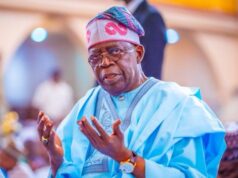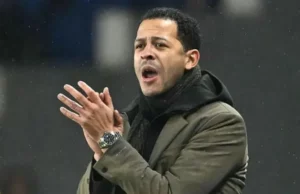Eedris Abdulkareem, a Nigerian rapper, has explained that his latest song is not aimed at President Tinubu but is instead a reaction to a comment made by the president’s son, Seyi Tinubu, who claimed his father is the greatest leader Nigeria has ever had.
Abdulkareem also condemned the National Broadcasting Commission (NBC) for banning the track, calling the move hypocritical.
Speaking on Channels Television’s Rubbin’ Minds programme, Abdulkareem said, “Nigerian youths are just asking for basics: electricity, security, an enabling economic environment, job creation, and not palliatives.”
He added, “Why should I attack Seyi Tinubu personally? If Seyi Tinubu never talked about it, I wouldn’t have recorded a song like that. So, I am replying to the video that he made. If he had kept quiet, I wouldn’t have said anything. I am inspired by Seyi Tinubu to record that song.”
“I was inspired by Seyi Tinubu to record the song. I saw a video where he was campaigning for his father, and he was defending his father, saying, ‘My father is the best president; my father is the greatest president. They are coming for my father.
“He (Seyi) repeated it like six times. But for Seyi, I differ because it looks more perfect when you are silent than when you speak. I would advise Seyi to hand over the microphone to the MC next time. He lacks the charisma and purpose to express himself, telling the truth about the true economic situation in Nigeria under his father’s government,” he stated.
“He (Tinubu) has empowered Seyi as his son, but Nigerian youths don’t have jobs, much less food to eat. The Nigerian youths can’t travel by road, so I ask Seyi Tinubu to travel by road without his security. Let him feel the pains of ordinary citizens.”
The rapper also condemned the National Broadcasting Commission (NBC) for banning the track, calling it a hypocritical move that suppresses free expression.
He criticised the NBC for choosing to silence artists rather than hold leaders accountable, describing the action as “pure hypocrisy”: “Why ban a song that simply expresses the truth Nigerians are already living? Instead of fixing the country, they’re banning songs. That’s the real shame.”
Eedris also referenced his long history of using music as a tool for activism, notably his 2004 classic “Nigeria Jaga Jaga,” which also faced resistance from the Obasanjo administration. He lamented that two decades later, the issues remain the same — or even worse.
“This is 24 years after I released Nigeria Jaga Jaga, and the country is still Jaga Jaga. That’s a tragedy. Nigerians are hard-working, intelligent, and resilient people — all we suffer from is bad leadership.”
Abdulkareem reiterated his commitment to continue using music as a voice for the people: “This is my duty. I will keep singing truth to power until Nigeria becomes a better place. And when that day comes, I’ll gladly release a new song celebrating a nation that finally works.”










